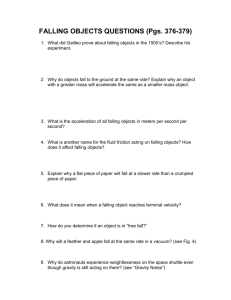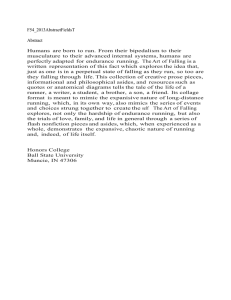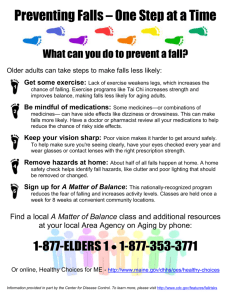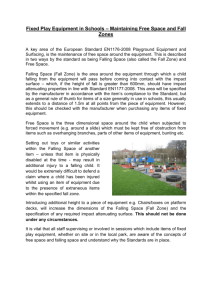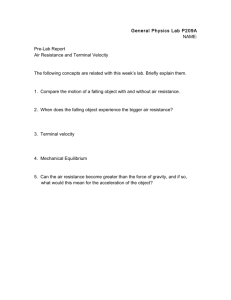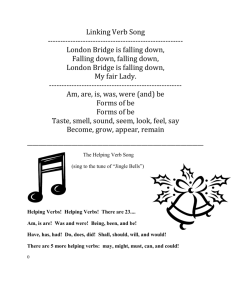DRUGS AND THE RISK OF FALLING
advertisement
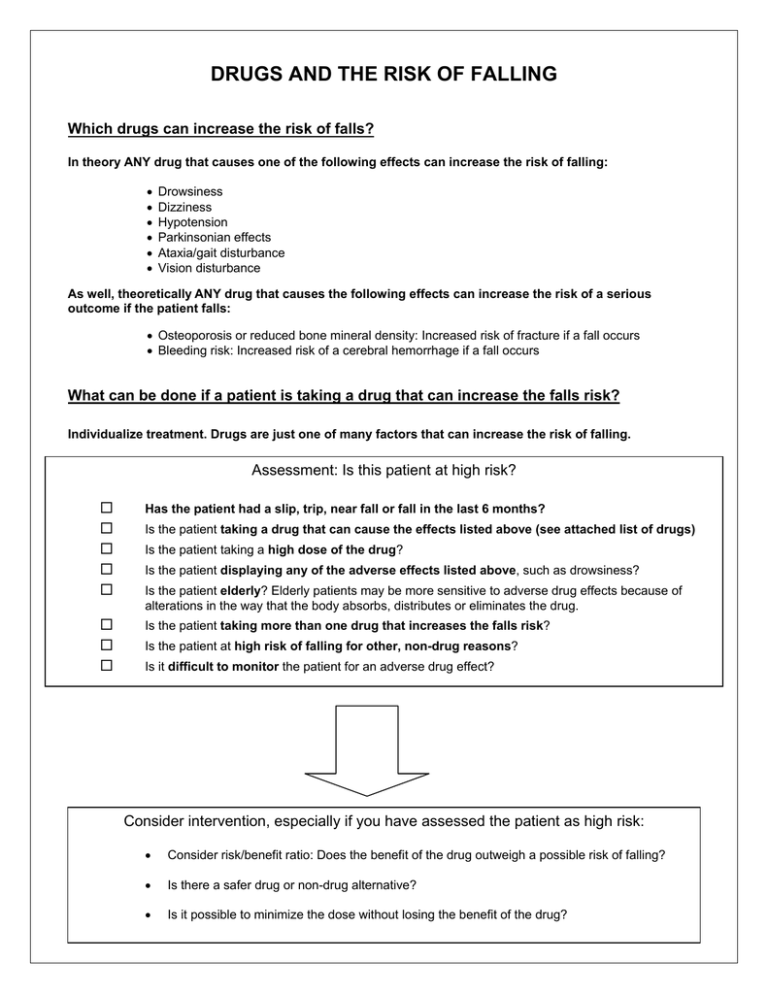
DRUGS AND THE RISK OF FALLING Which drugs can increase the risk of falls? In theory ANY drug that causes one of the following effects can increase the risk of falling: • • • • • • Drowsiness Dizziness Hypotension Parkinsonian effects Ataxia/gait disturbance Vision disturbance As well, theoretically ANY drug that causes the following effects can increase the risk of a serious outcome if the patient falls: • Osteoporosis or reduced bone mineral density: Increased risk of fracture if a fall occurs • Bleeding risk: Increased risk of a cerebral hemorrhage if a fall occurs What can be done if a patient is taking a drug that can increase the falls risk? Individualize treatment. Drugs are just one of many factors that can increase the risk of falling. Assessment: Is this patient at high risk? Has the patient had a slip, trip, near fall or fall in the last 6 months? Is the patient taking more than one drug that increases the falls risk? Is the patient taking a drug that can cause the effects listed above (see attached list of drugs) Is the patient taking a high dose of the drug? Is the patient displaying any of the adverse effects listed above, such as drowsiness? Is the patient elderly? Elderly patients may be more sensitive to adverse drug effects because of alterations in the way that the body absorbs, distributes or eliminates the drug. Is the patient at high risk of falling for other, non-drug reasons? Is it difficult to monitor the patient for an adverse drug effect? Consider intervention, especially if you have assessed the patient as high risk: • Consider risk/benefit ratio: Does the benefit of the drug outweigh a possible risk of falling? • Is there a safer drug or non-drug alternative? • Is it possible to minimize the dose without losing the benefit of the drug? Barbara Cadario and BC Falls and Injury Prevention Coalition. Drugs and the Risk of Falling: Guidance Document. August 2009. Examples of drugs that can increase the risk of falling, or of a serious outcome if a fall occurs (and possible mechanisms) Falls are often caused by multiple factors. This list should be used in conjunction with other fall prevention strategies. A patient should not be denied beneficial or necessary drug therapy based on this list. ACE Inhibitors (3) Benazepril Captopril Cilazapril Enalapril/enalaprilat Fosinopril Lisinopril Perindopril Quinapril Ramipril Trandolapril Methsuximide (1,2,5) Oxcarbazepine (1,2,5,6) Phenobarbital (1,2) Phenytoin (1,2,5,7) Primidone (1,2) Topiramate (1,2) Valproic acid (1,2,5) Vigabatrin (1,2) Anticoagulants (8) Dalteparin Danaparoid Enoxaparin Heparin Nadroparin Nicoumalone Tinzaparin Warfarin Antidepressants (1,2,3,6) Amitriptyine Bupropion Citalopram Clomipramine Desipramine Doxepin Escitalopram Fluoxetine Fluvoxamine Imipramine Maprotiline Mirtazapine Moclobemide Nortriptyline Paroxetine Phenelzine 1,2,3 Sertraline Tranylcypromine 2,3 Trazodone Trimipramine Venlafaxine Anticonvulsants (1,2,5,6,7) Carbamazepine (1,2,6) Ethosuximide (1,2,5) Fosphenytoin (1,2,5,7) Gabapentin (1,2,5,6) Lamotrigine (1,2,6) Levetiracetam (1,2,5) Antihistamines, sedating (1) Cold Medications that contain sedating antihistamines (1) Azatadine Brompheniramine Cetirizine Alcohol (1,5) Alpha Receptor Blockers (2,3, especially initial doses) Alfuzosin Doxazosin Prazosin Tamsulosin Terazosin Chlorpheniramine Clemastine Cyproheptadine Diphenhydramine Hydroxyzine Meclizine Promethazine Trimeprazine Methylprednisolone Prednisolone Prednisone Triamcinolone Digoxin (mechanism unknown) Eye drops (6) Antipsychotics (1,3,4) Chlorpromazine Clozapine Flupenthixol Fluphenazine Haloperidol Loxapine Methotrimeprazine Olanzapine Paliperidone Perphenazine Pimozide Pipotiazine Prochlorperazine Quetiapine Risperidone Thioproperazine Thiothixene Trifluoperazine Zuclopenthixol Corticosteroids, oral (7) Corticosteroids, inhaled, highdose (7) Beclomethasone Betamethasone Budesonide Cortisone Dexamethasone Fludrocortisone Fluticasone Hydrocortisone Herbal and Natural health products Natural sleep aids Natural products for sexual enhancement (possible adulteration with undeclared drugs) Metoclopramide (1,2,4) Muscle Relaxants (1,2) Baclofen Carisoprodol Chlorzoxazone Cyclobenzaprine Dantrolene Methocarbamol Orphenadrine Tizanidine Nitrates (2,3) Isosorbide dinitrate Isosorbide mononitrate Nitroglycerin NSAIDs ASA/acetylsalicylic acid (8) Opiates/narcotics (1,2,3) Alfentanil Butorphanol Codeine Fentanyl Hydromorphone Meperidine Methadone Morphine Oxycodone Oxymorphone Nalbuphine Pentazocine Propoxyphene Sufentanil Sedative/hypnotics Benzodiazepines Barbiturates (1,2,5) Alprazolam Bromazepam Chloral hydrate Clorazepate Diazepam Diphenhydramine Doxylamine Flurazepam Lorazepam Midazolam Nitrazepam Oxazepam Pentobarbital Phenobarbital Temazepam Triazolam Zopiclone Thiazolidinediones (7) Pioglitazone Rosiglitazone Possible mechanisms (often unclear): (1) Drowsiness; (2) Dizziness; (3) Hypotension; (4) Parkinsonian effects; (5) Ataxia/gait disturbance; (6) Vision disturbance; (7) Osteoporosis or reduced bone mineral density increases the fracture risk if a fall occurs; (8) Risk of serious bleeding if a fall occurs. Drugs are listed by generic (chemical) name under each drug group. For Brand (manufacturer’s) names, check in the CPS to find the generic name. This list includes only those drugs for which there is evidence of increased risk of falls or their consequences. There may be other drugs that increase this risk in certain patients. Barbara Cadario and BC Falls and Injury Prevention Coalition. Drugs and the Risk of Falling: Guidance Document. August 2009.
